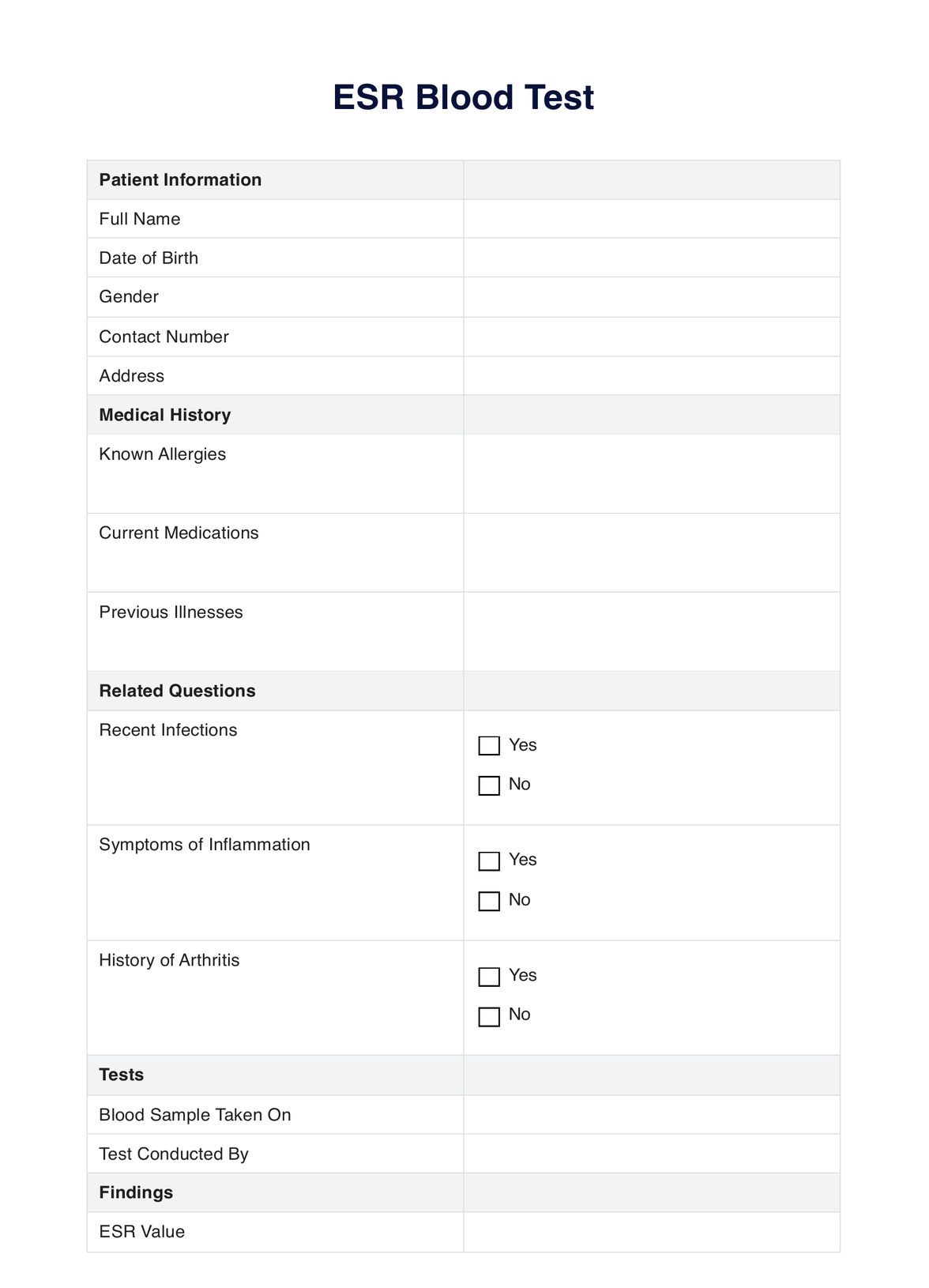What is an ESR Blood Test?
The ESR Blood Test, commonly known as the erythrocyte sedimentation rate test, is a time-honored tool in the medical toolkit. But what exactly is it, and why is it so crucial for healthcare professionals?
At its core, the ESR Blood Test measures the rate at which red blood cells (erythrocytes) settle at the bottom of a test tube in one hour. It might sound simple, but this rate can reveal much about a person's health. A faster sedimentation rate might indicate inflammation in the body, making the ESR test a valuable indicator for conditions like rheumatoid arthritis, systemic lupus erythematosus, and many other inflammatory disorders.
But it's not just about detecting inflammation. The beauty of the ESR Blood Test lies in its versatility. While it's not specific to any one condition, it serves as a general marker, helping doctors gauge how much inflammation is in the body. Think of it as a medical weather vane, pointing healthcare professionals in the right direction.
In the ever-evolving world of medicine, the ESR Blood Test remains a steadfast ally for clinicians. It's a testament to its enduring value in patient care. Whether you're a seasoned doctor or a budding medical student, understanding the nuances of this test is paramount. After all, in the hands of a skilled professional, the ESR Blood Test is more than just a procedure; it's a window into the body's inner workings.












